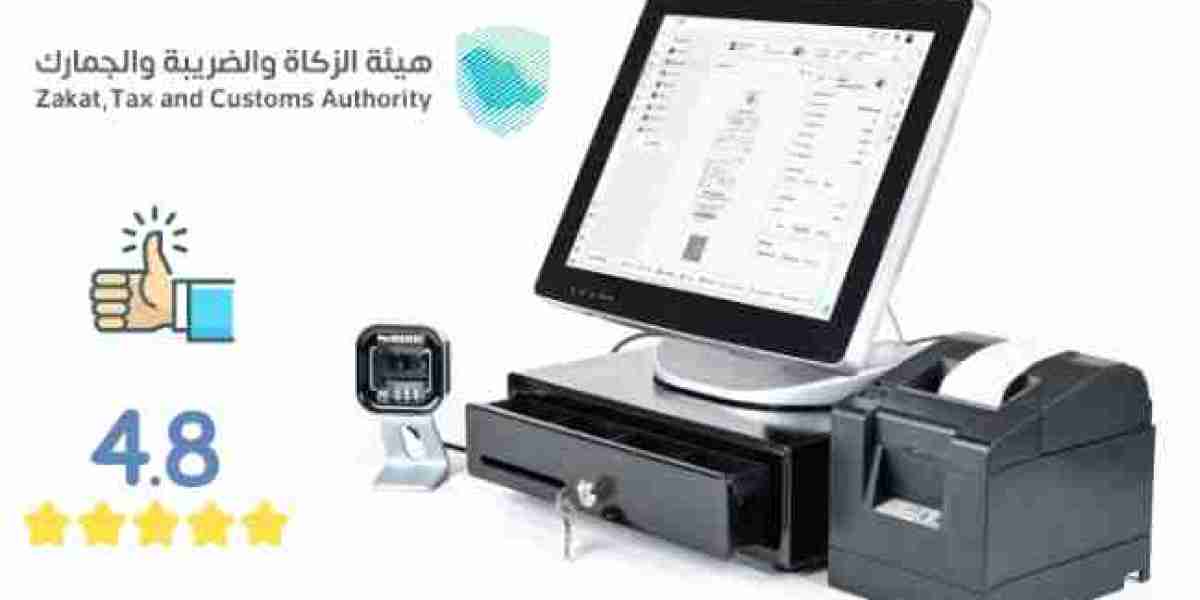In the digital era, businesses across various industries are rapidly adopting innovative technologies to streamline their operations. One such crucial innovation is e-invoicing software, a digital solution designed to automate and enhance the invoicing process. This advanced technology has gained significant traction worldwide, including in regions such as Saudi Arabia, where regulatory compliance and operational efficiency are top priorities for businesses.
What is e invoicing software?
E-invoicing software is a digital platform that enables businesses to generate, send, receive, and process invoices electronically. Unlike traditional paper-based invoicing, which is time-consuming and prone to errors, e-invoicing provides a seamless, automated approach that reduces manual intervention and enhances accuracy. With the introduction of mandates in many countries, including Saudi Arabia's e-invoicing initiative known as Fatoorah, companies are now required to transition from manual invoicing to a structured digital format.
The primary purpose of e-invoicing software is to facilitate faster transactions, improve compliance, and ensure transparency in financial operations. It integrates with enterprise resource planning (ERP) systems and accounting software to offer a comprehensive solution that meets business needs and regulatory standards.
Key Features of E-Invoicing Software
E-invoicing software is equipped with a range of features designed to simplify financial transactions. One of the most notable features is automation, which eliminates the need for manual data entry, reducing the risk of errors and discrepancies. The software also ensures compliance with government regulations, making it easier for businesses to adhere to tax laws and reporting requirements.
Another important feature is real-time invoice tracking, which provides businesses with greater visibility into their transactions. This helps in managing cash flow efficiently and ensures timely payments. Additionally, e-invoicing software supports secure digital signatures, which authenticate invoices and enhance data security. Integration capabilities allow seamless connectivity with other business applications, making invoicing more efficient and streamlined.
How E-Invoicing Software Enhances Business Efficiency
The implementation of e-invoicing software significantly improves business efficiency by reducing operational costs and processing time. Traditional invoicing methods involve printing, mailing, and manually entering invoice details, all of which require substantial resources. With e-invoicing, businesses can send and receive invoices instantly, leading to faster payment cycles and improved cash flow management.
Furthermore, automation reduces administrative workload, allowing finance teams to focus on strategic tasks rather than repetitive manual processes. The software also minimizes the chances of invoice disputes and errors, ensuring smooth transactions between businesses and their clients. Enhanced accuracy and real-time tracking contribute to better financial planning and decision-making.
Compliance with Saudi Arabia's E-Invoicing Regulations
Saudi Arabia has introduced a mandatory e-invoicing system known as Fatoorah, which aims to enhance tax compliance and transparency. Businesses operating in the country are required to implement e-invoicing software that complies with the Zakat, Tax, and Customs Authority (ZATCA) regulations. This ensures that all invoices are generated in a standardized electronic format, preventing fraud and tax evasion.
E-invoicing software designed for the Saudi market includes specific compliance features, such as invoice validation, QR code generation, and digital signing. These functionalities ensure that businesses meet regulatory requirements while maintaining operational efficiency. Companies that fail to comply with e-invoicing mandates may face penalties, making it essential for organizations to adopt compliant software solutions.
Security and Data Protection in E-Invoicing Software
Security is a critical aspect of e-invoicing software, as it involves the transmission and storage of sensitive financial data. The software employs advanced encryption techniques to protect invoice information from unauthorized access. Secure digital signatures authenticate invoices, ensuring their integrity and preventing tampering.
Moreover, cloud-based e-invoicing solutions offer secure data storage with regular backups, minimizing the risk of data loss. Multi-factor authentication and role-based access controls further enhance security, allowing only authorized personnel to access financial records. By implementing robust security measures, businesses can safeguard their financial data and maintain compliance with data protection regulations.
The Future of E-Invoicing Software
As technology continues to evolve, the future of e-invoicing software looks promising. Artificial intelligence and machine learning are expected to play a significant role in enhancing automation and predictive analytics. These advancements will enable businesses to gain deeper insights into their financial operations and optimize their invoicing processes.
Blockchain technology is another innovation that could revolutionize e-invoicing by ensuring transparency and immutability of financial records. Smart contracts powered by blockchain can facilitate automated payments and reduce the risk of disputes. The integration of these cutting-edge technologies will further improve the efficiency and reliability of e-invoicing software.
In addition, governments worldwide are increasingly adopting e-invoicing regulations to enhance tax compliance and reduce fraud. Businesses that embrace e-invoicing early will have a competitive advantage, as they can seamlessly adapt to evolving regulatory requirements and market trends.
Choosing the Right E-Invoicing Software
Selecting the right e-invoicing software is crucial for businesses aiming to enhance their invoicing processes and ensure compliance. Companies should consider factors such as ease of use, integration capabilities, security features, and regulatory compliance before making a decision.
It is advisable to opt for software that offers customizable invoicing templates, real-time tracking, and automated reminders for due payments. Cloud-based solutions provide flexibility and accessibility, enabling businesses to manage their invoices from anywhere. Additionally, choosing a software provider with excellent customer support ensures smooth implementation and troubleshooting when needed.
Conclusion
e invoicing software is transforming the way businesses handle their financial transactions, offering numerous benefits such as automation, cost reduction, compliance, and security. In regions like Saudi Arabia, where e-invoicing is mandatory under the Fatoorah system, adopting a compliant software solution is essential for businesses to remain competitive and compliant. As technology continues to advance, e-invoicing software will become even more sophisticated, further streamlining business operations and enhancing financial management. By investing in the right e-invoicing software, companies can improve efficiency, reduce errors, and ensure seamless transactions in the digital economy.
jitoto
4 blog posts




